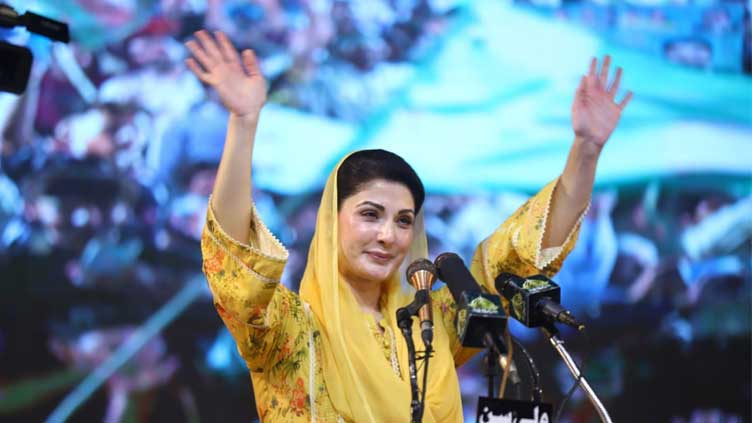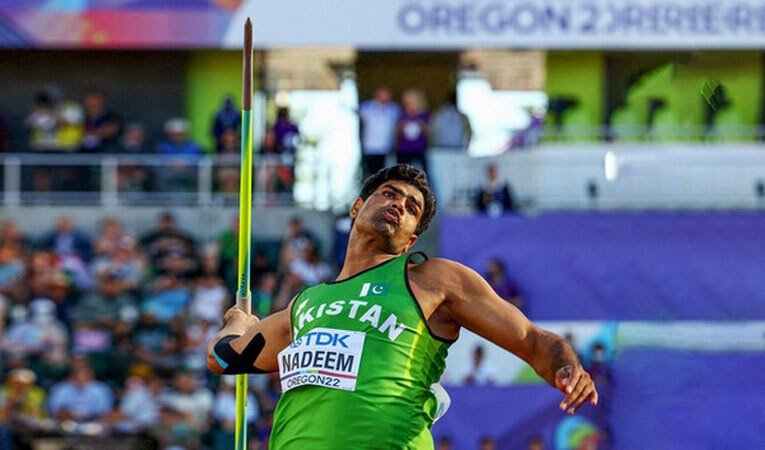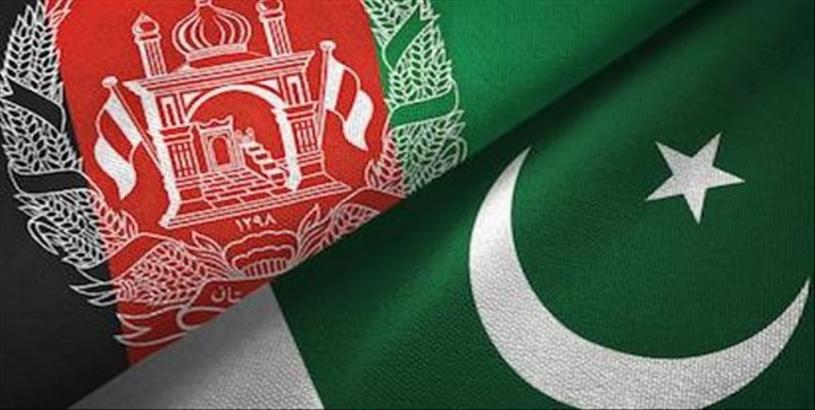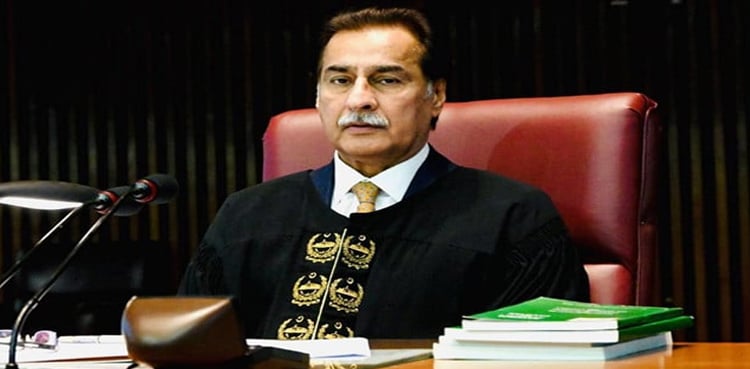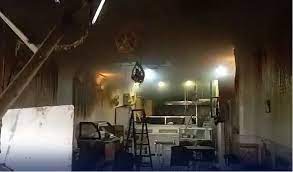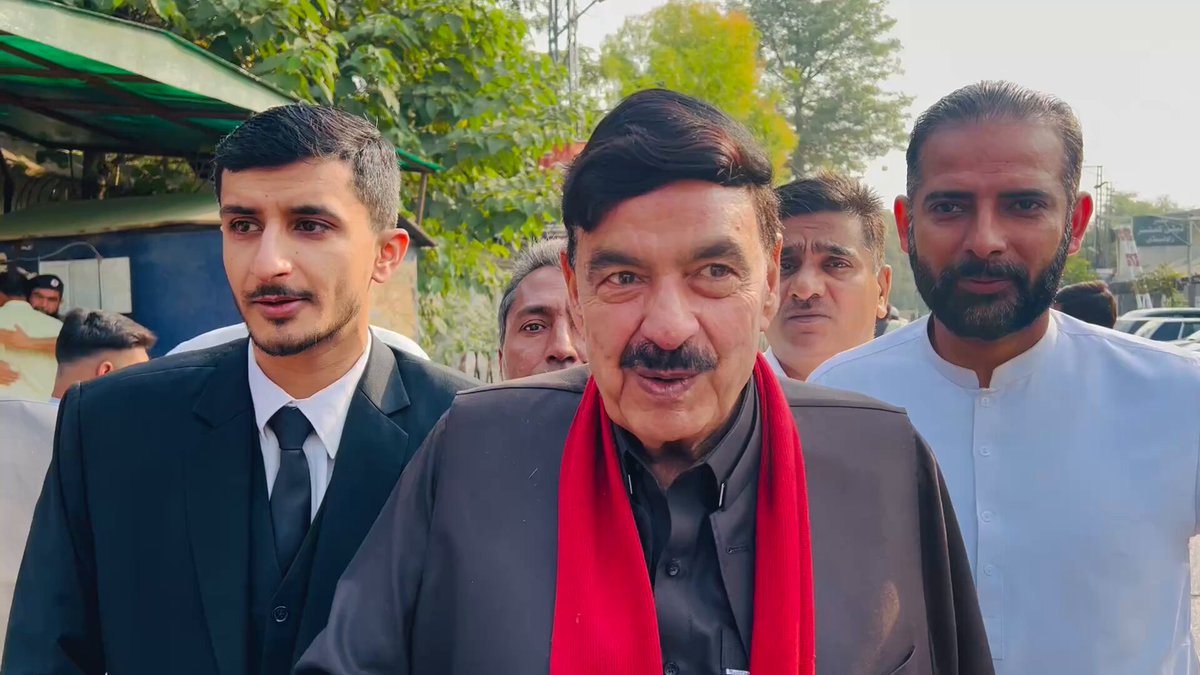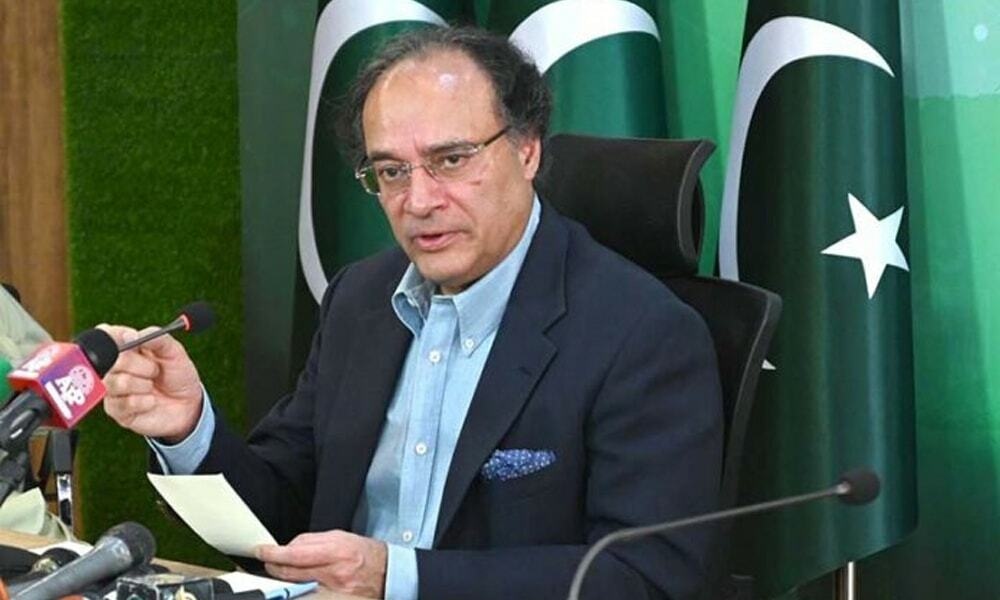No-trust motion: NA session to decide PM Imran's fate adjourned till 12:30pm
By Muhammad JuniadPublished On 06 Jan 2023

The National Assembly session to decide the fate of Prime Minister Imran Khan has been adjourned till 12:30pm.
NA Speaker Asad Qaiser is chairing today's session which began at 10:30am sharp, in accordance with the Supreme Court's directives, and with the recitation of the Holy Quran. It was followed by the national anthem and prayers for the recently deceased mother of MNA Shazia Sobia.
Voting on the no-confidence motion against the prime minister is the fourth item on the day's agenda. While the opposition came out in full force, very few members of the treasury benches were in attendance before the session was adjourned. Prime Minister Imran Khan was also not present.
Taking the floor, Leader of the Opposition in the National Assembly Shehbaz Sharif hailed Thursday as a historic day in the country's history when the apex court rejected the deputy speaker's ruling. According to the PML-N leader, the SC decision had made Pakistan's future "bright".
He called on Qaiser to conduct proceedings in accordance with the SC's directives, stating that parliament would be writing history today. "Today, parliament is going to defeat a selected prime minister in a constitutional manner," he declared.
Shehbaz told the speaker to let bygones be bygones and to stand for the law and the Constitution. He urged the speaker to play his role and to have his name "written in history in golden words".
"You must cash in on this moment with conviction and with your heart and your mind. Don't go off of the dictation of a selected prime minister," he urged Qaiser, adding that the apex court's directives were clear.
Responding to Shehbaz's earnest plea, Qaiser assured the opposition leader that he would conduct proceedings according to the law and the Constitution.
"[But] the important thing is that there has been talk of an international conspiracy. This should also be discussed," he said, as the hall echoed with protests from the opposition benches.
This prompted Shehbaz to tell the Qaiser that he would be violating the court's directives if he would go down that road. He also read out the court's directives regarding the convening of the session.
"Under the court's directives, you are bound to take up this agenda item and no other item. That is the intent of the order and you cannot deviate from it," he said, calling on the speaker to hold voting on the motion forthwith.
"The SC's orders will be followed in true letter and spirit," Qaiser replied, giving the floor to Foreign Minister Shah Mahmood Qureshi.
The foreign minister began by acknowledging that the opposition had the right to table a no-trust motion against the prime minister but said that defending it was his obligation. "We intend to fight it in constitutional, political and democratic manner," he asserted.
Talking about constitutional violations, he said that it was obligatory "on us to respect the Constitution". "As the prime minister said yesterday, he is disappointed but has accepted the court's decision," Qureshi said, referring to PM Imran's late-night address on Friday.
Qureshi said there had been many examples of constitutional violations in Pakistan's history. "Constitutional violations, unfortunately, have been a part of our history."
He said a major example of a constitutional violation from recent history pertained to October 12, 1999, when PML-N supremo Nawaz Sharif's government was toppled as a result of a military coup.
"The nation is a witness to the fact that the Constitution was violated on October 12, 2009. And when the case was presented before the apex court ... history is witness, that not only justifications were made but permission was also given for an amendment to the Constitution," he said.
Qureshi noted that Pakistan Democratic Movement chief Maulana Fazlur Rehman and PPP Chairperson Bilawal Bhutto-Zardari had said they would not accept any ruling based on the doctrine of necessity, even before the SC had issued its verdict and while the matter was sub-judice.
The minister went on to say that the doctrine of necessity should have been buried, voicing his happiness at the "evolution" of Pakistan's democracy. "I am happy that Pakistan's democracy has evolved and that we all are not ready to take its (doctrine of necessity) support."
Qureshi also presented the stance of the prime minister, saying that he was disappointed but respected the court's orders. He added that NA proceedings were being conducted in accordance with the directives issued by the court.
"Today is Saturday and the session has started at 10:30am. The court said the session will not be prorogued unless the process of Article 95 and rule 37 is concluded."
However, it is important to present the context under which the court directed to summon the session again, he added. He said that the clock was turned back and the apex court unanimously dismissed the April 3 ruling.
The minister said that the prime minister went to the people by dissolving the assembly, adding that the opposition had been calling for early polls for close to four years.
"He (prime minister) said let's go to the people and let them decide in whose hands they want to see Pakistan's future."
He reiterated that the government had accepted the court's decision but questioned why the opposition parties went to the court and why the SC took suo motu notice. "The ruling the deputy speaker gave when he was chairing the session [...] he did not reject the constitutional process. He said a new situation had surfaced and that it should be probed in its light."
Qureshi added that the National Security Committee (NSC), one of the country's top forums, had seen the cable — purportedly containing evidence of a foreign plot against the government — and concluded that it was a sensitive matter.
"The NSC took two decisions. First, they acknowledged there was interference in Pakistan's internal matters and that a demarche must be issued," he said, adding that the Foreign Office followed these directives.
"The second was to immediately summon the Parliamentary Committee on National Security and for the matter to be presented before elected representatives," he said, adding that the opposition was also invited.
At this point, the opposition benches started protesting and shouting which led the minister to ask why they were "nervous". Amid the commotion, the speaker adjourned the session till 12:30pm.
قومی اسمبلی : متحدہ اپوزیشن کا پارلیمانی اجلاس قائد حزب اختلاف شہباز شریف کی زیر صدارت جاری pic.twitter.com/zbaQkAUbrf
— PML(N) (@pmln_org) April 9, 2022
Opposition holds parliamentary committee meeting
Lawmakers began arriving at Parliament House ahead of the session while television footage showed tight security arrangements in place in the capital. The united opposition also held a meeting of its parliamentary group that was chaired by PML-N President Shehbaz Sharif and attended by 176 lawmakers.
The opposition needs the support of at least 172 lawmakers from a total of 342 to oust the premier through the no-trust move.
Despite the impression that the PTI has lost its majority in the lower house, the ruling party is still adamant that it would not leave the field open for the opposition and has vowed to make things as difficult for them as they can, be it creating hurdles in the voting procedure or preventing the election of opposition nominee Shehbaz Sharif as the new leader of the house.
Ahead of the session, on Friday, PM Imran had presided over a meeting of the party’s parliamentary group.
Meanwhile, Information Minister Fawad Chaudhry has said the government would present the "threatening" cable — purportedly containing evidence of a foreign plot against the government — or its contents in the assembly and will ask the speaker for a debate on the issue.
Speaking to ARY News on Friday night, he was of the opinion that even though the vote of no confidence was on the agenda, voting would likely not take place today. He said that while the SC had instructed voting to be held in the session called on April 9, that didn't mean it would have to be on the same date.
No-trust motion commotion
The joint opposition primarily the Pakistan Democratic Movement (PDM) and the PPP — had submitted the no-confidence motion against the premier with the NA Secretariat on March 8.
In the days to follow, the country's political landscape was abuzz with activity as parties and individuals changed alliances and the PTI and opposition were seen trading barbs and allegations alongside intensifying efforts to ensure their success in the no-confidence contest.
Eventually, major allies of the ruling PTI Balochistan Awami Party and Muttahida Qaumi Movement-Pakistan — deserted the government and joined the opposition ranks which led to PM Imran losing his majority in the lower house of parliament.
In addition, over a dozen PTI dissident MNAs have already come into the open with their criticism on the government policies, indicating that they might support the opposition’s no-trust motion even at the cost of being disqualified as NA members.
For its part, the PTI has managed to secure the support of another one of its key allies, the Pakistan Muslim League-Quaid (PML-Q), as Usman Buzdar stepped down as the Punjab chief minister in favour of the PML-Q's Chaudhry Pervaiz Elahi, who the ruling party announced as its candidate for the province's new chief executive.
However, one of the many twists in the saga emerged when PM Imran claimed to have evidence of a "foreign conspiracy" to oust his government. At the PTI's rally on March 27, the premier had pulled out a piece of paper from his pocket and waved it at the crowd, claiming it was evidence of an "international conspiracy" being hatched to topple his government.
The PTI accused the opposition of being part of the foreign plot and tried to turn the tide in its favour by disclosing some of the details in the "threat letter" to journalists and lawmakers.
Separately, after a few delays, the National Assembly finally convened on April 3 to vote on the no-trust motion against the premier. In a "surprise" move, the opposition submitted a similar motion against the speaker which led to the deputy speaker chairing the session.
However, the PTI would prove to be five steps ahead of the opposition as Suri dismissed the motion, saying it was part of a foreign conspiracy to oust PM Imran, after Information Minister Fawad Chaudhry spoke on a point of order, citing Article 5 of the Constitution, which mandates loyalty to the state for every citizen.
Within minutes of the pandemonium that broke out, PM Imran appeared on television to announce that he had advised the president to dissolve the lower house of parliament and called on the people to prepare for fresh elections.
The government's move also led to the Supreme Court taking suo motu notice of the deputy speaker's ruling with Chief Justice of Pakistan Umar Ata Bandial stating that all orders and actions initiated by the prime minister and president regarding the dissolution of the National Assembly would be subject to the court's order. Meanwhile, opposition parties also filed pleas questioning the legality of Suri's ruling.
What followed were five days of marathon hearings where the court heard arguments from the government and the opposition. At the same time, the PTI began its preparations for the next elections, insisting on the existence of a foreign conspiracy behind the no-confidence motion.
On Thursday night, the apex court in a historic ruling set aside Suri's ruling and the subsequent dissolution of the assembly by the president on the PM's advice, with all five judges unanimously voting 5-0 against it.
The court's verdict also restored the prime minister and his cabinet in their position and directed for the session of the National Assembly to reconvene on Saturday (today) no later than 10:30am. saying that the session cannot be prorogued without the conclusion of the no-trust motion against PM Imran.

